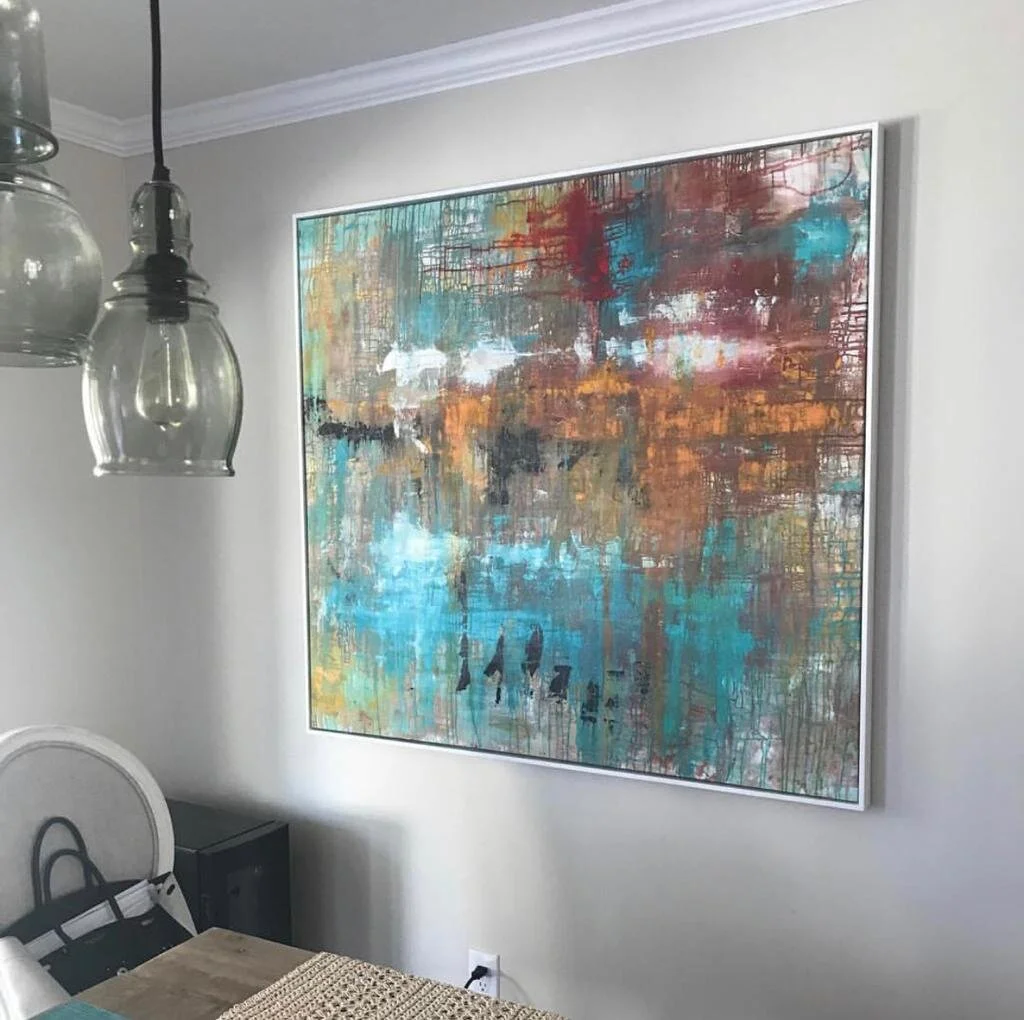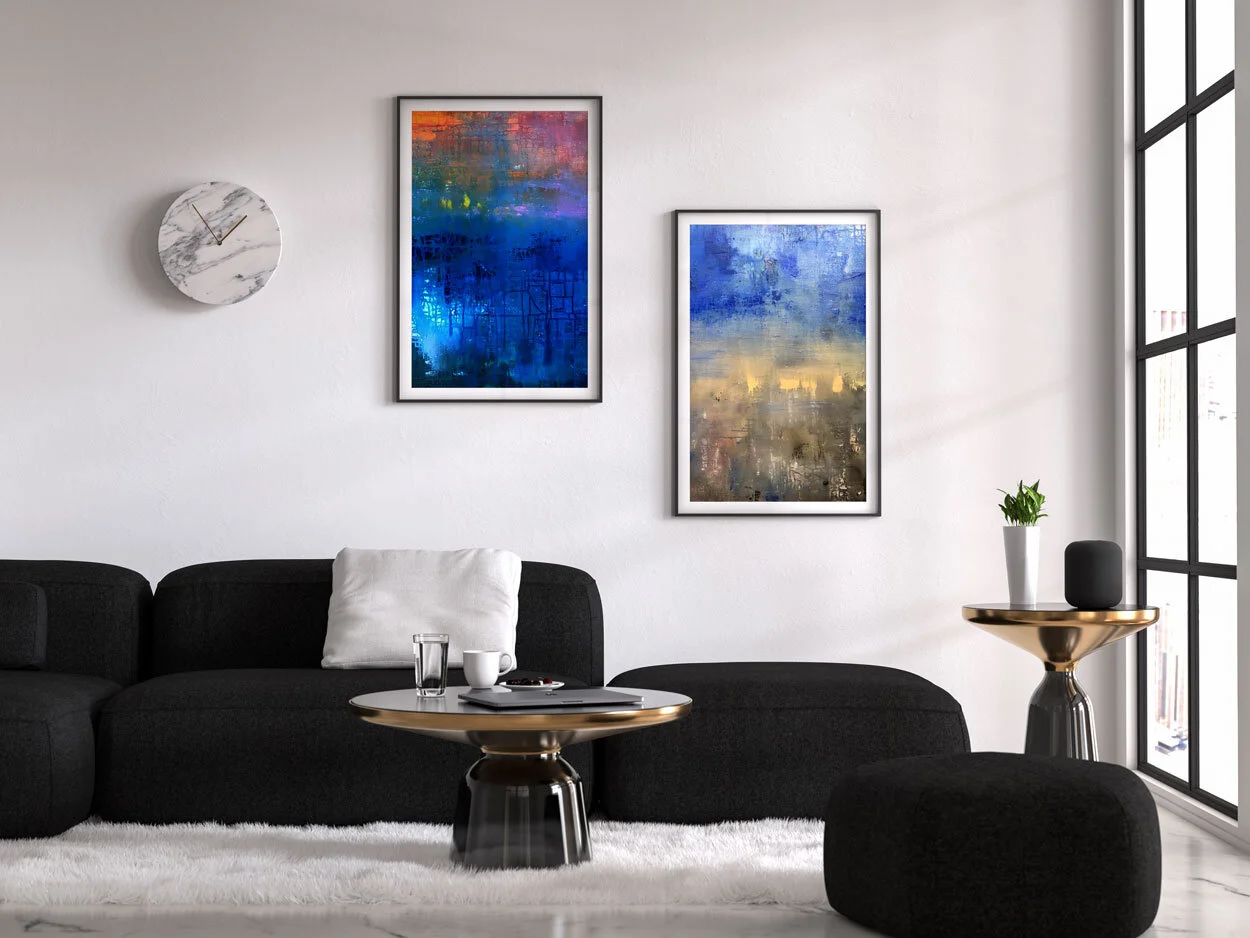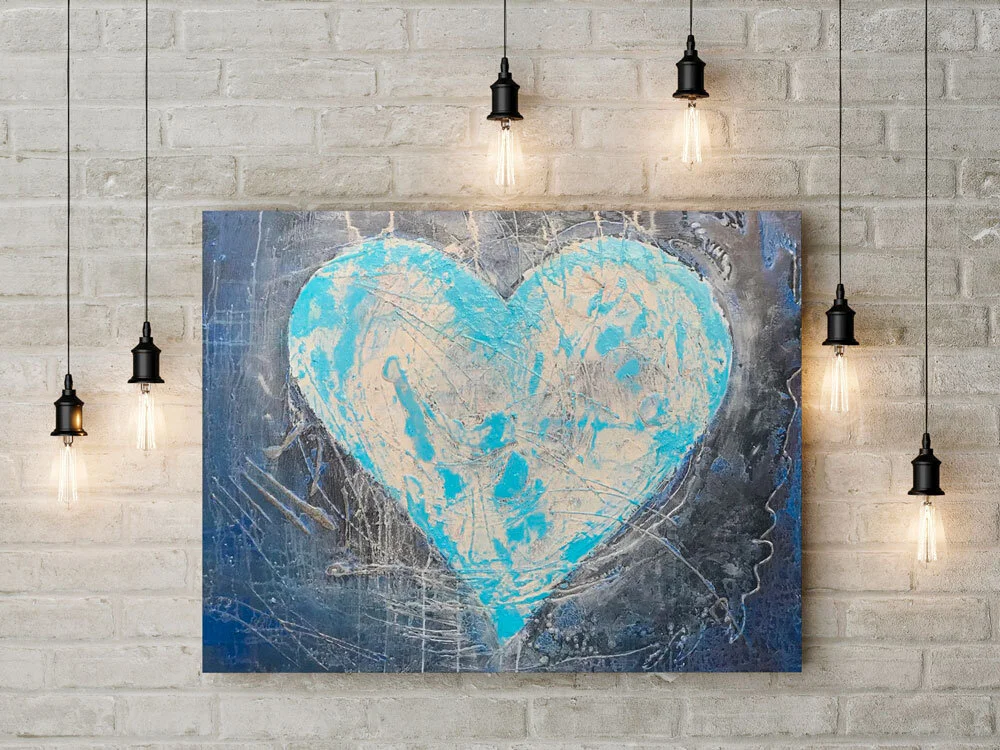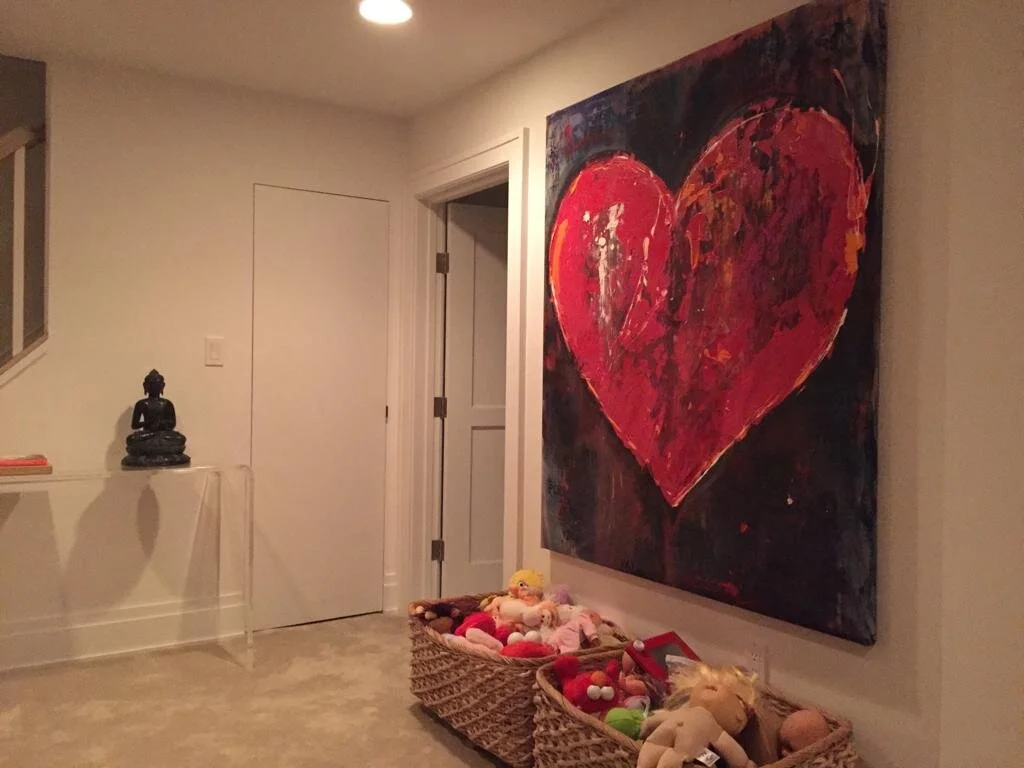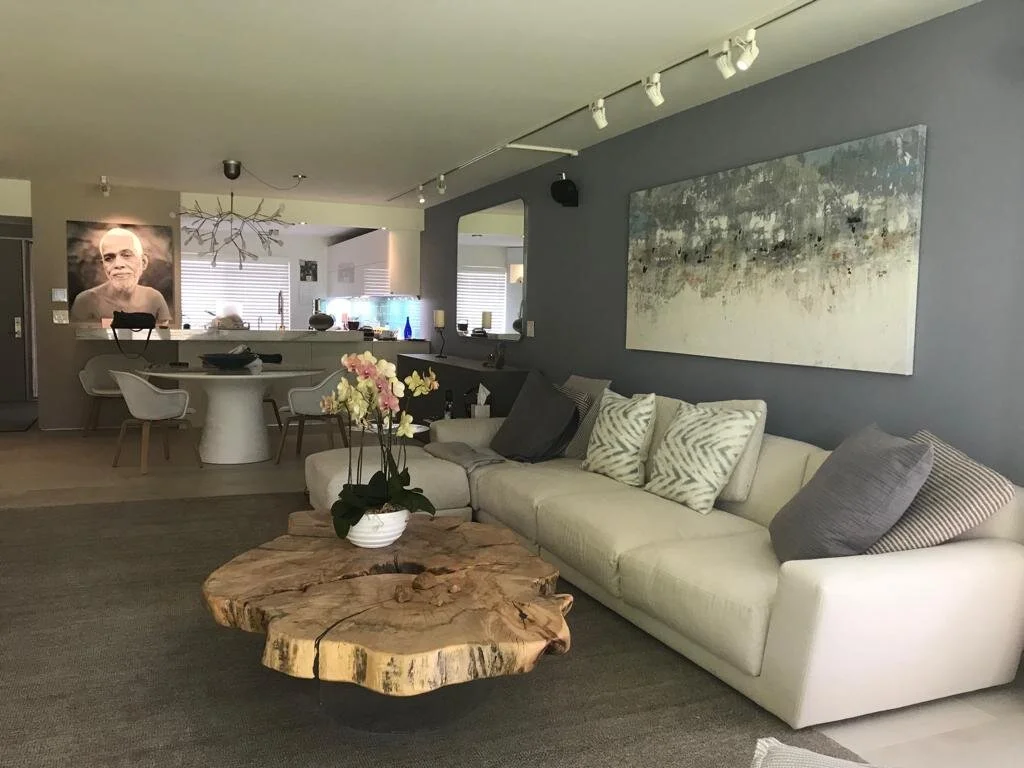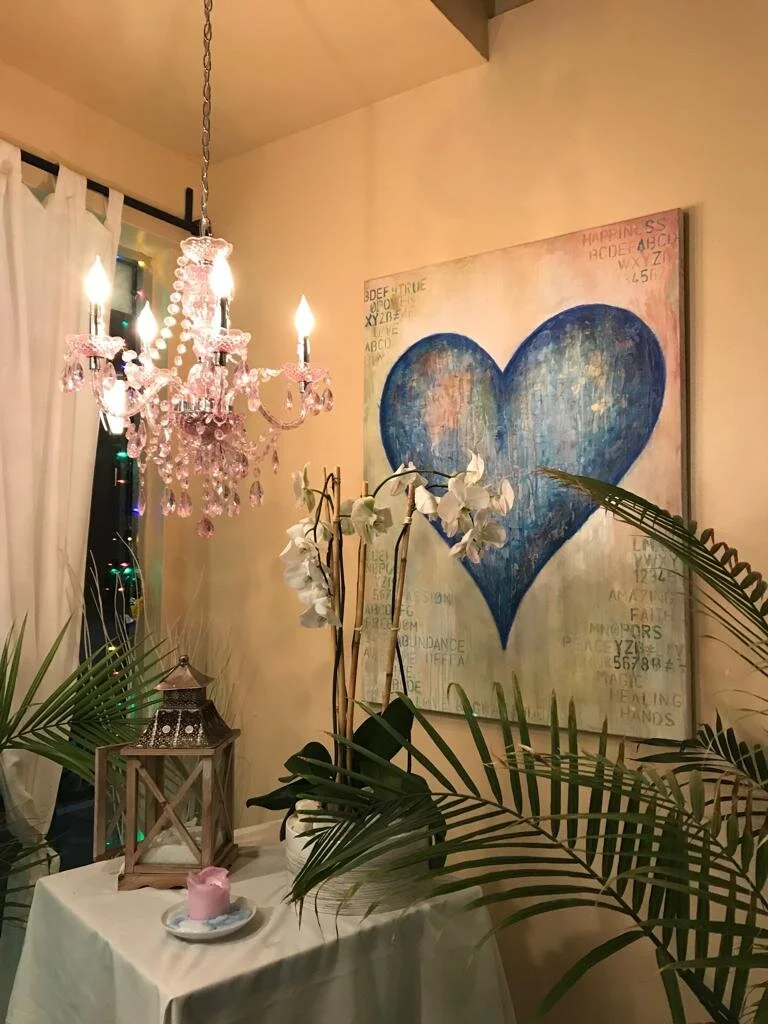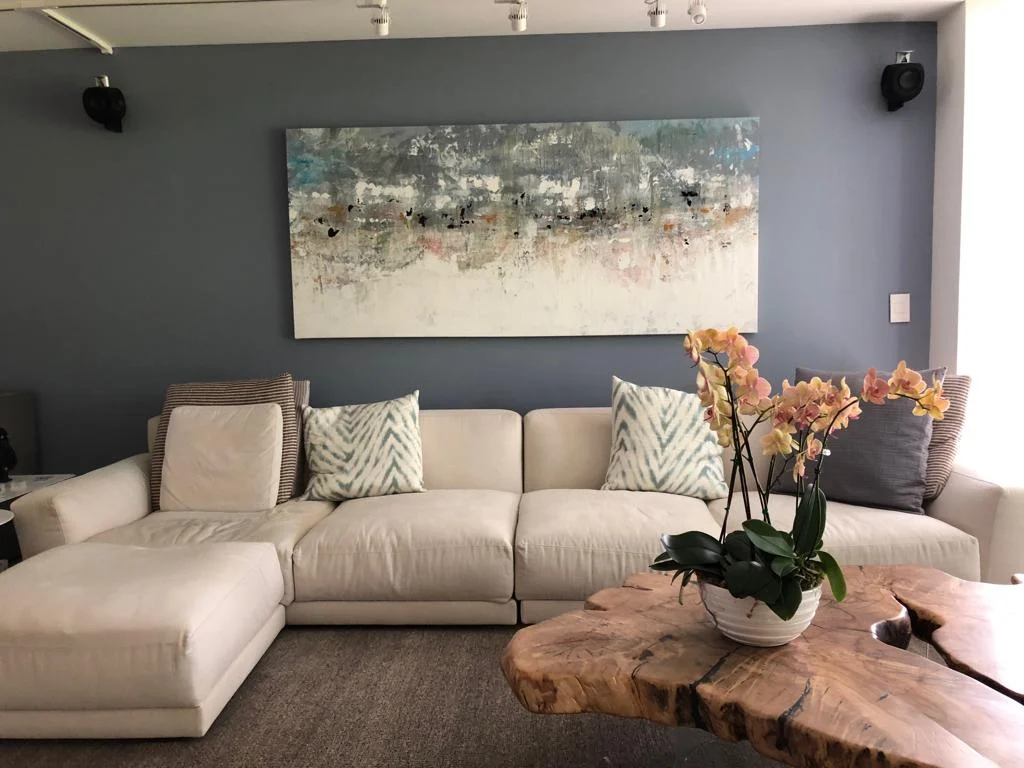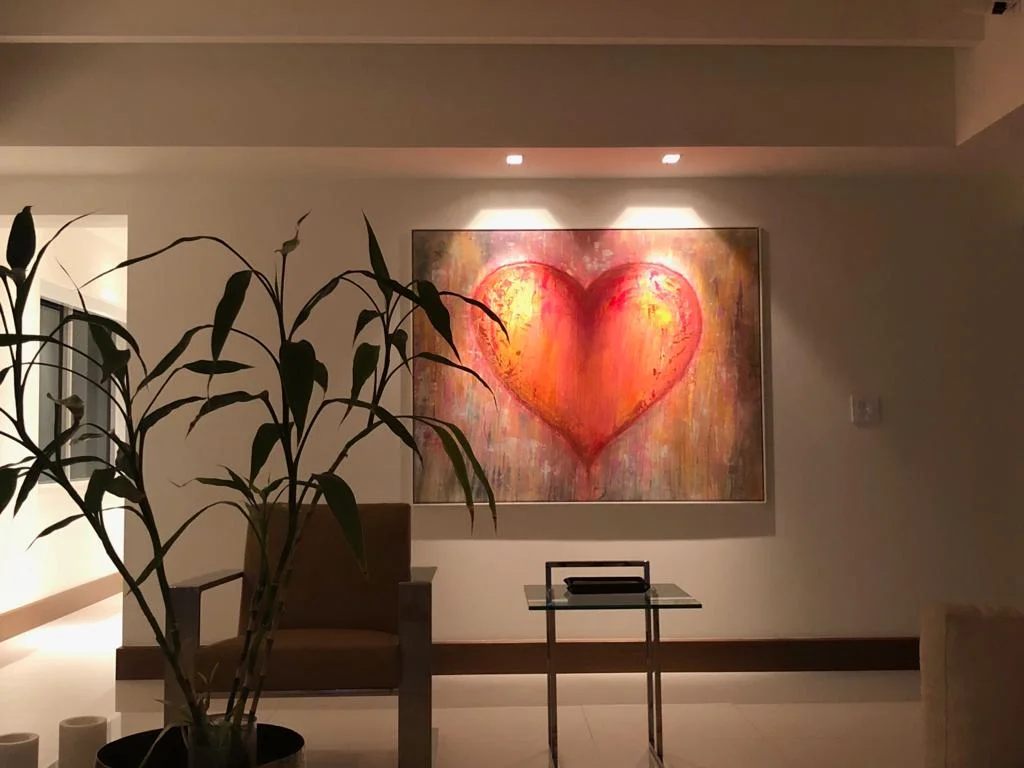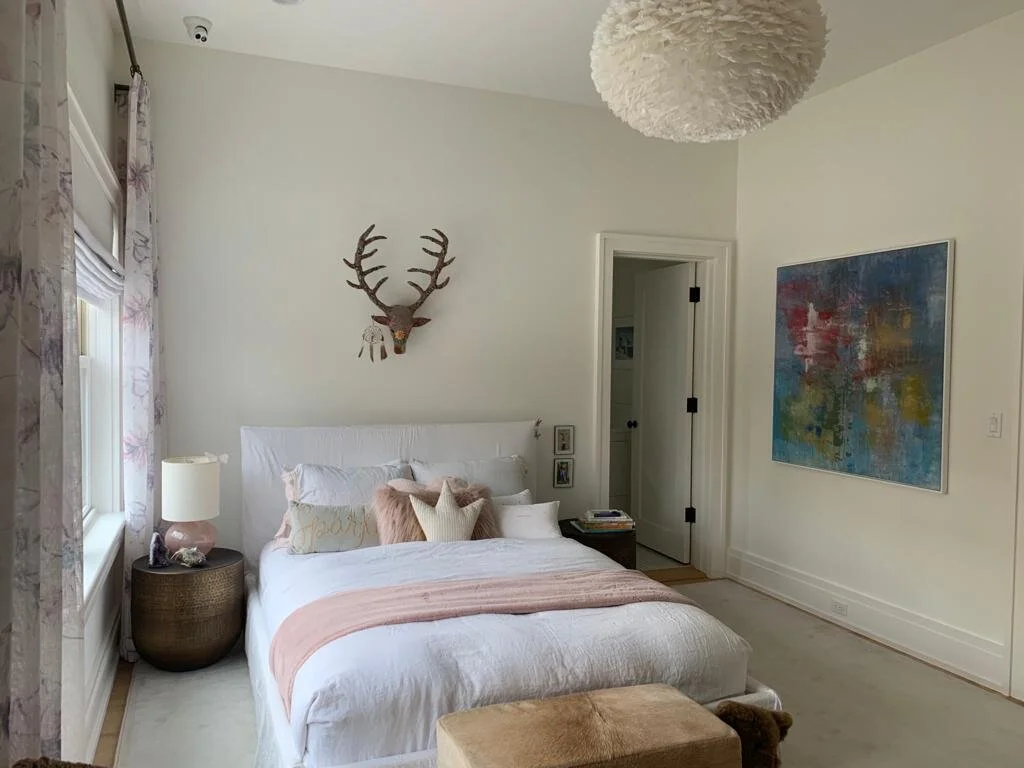The very first step in hanging wall art is choosing the proper placement for each piece. But when you’ve got a very large abstract canvas, or an odd-numbered stack of petite nautical prints, choosing where to hang what is often the most daunting task.
We’ll show you how to hang your artwork and make the process a little bit easier.
Abstract painting made by Cristina Dalcomune. The image is illustrative and may not follow the painting's real size.
1. A fireplace is always the focal point of a room
Display a painting in that space above the mantle to tell your own design story.
Make the art grouping about the same size as the fireplace opening.
Use one large piece or several small pieces that appear as one unit.
Abstract painting made by Cristina Dalcomune in a client’s home.
2. Remember you are decorating a wall
Choose smaller pieces for narrow walls and larger canvas wall art pieces for big walls.
For Small Spaces:
A tightly-grouped even number of pieces in a small area, such as a stair landing, is perfect and gives a window effect. Light colors enhance this effect.
For Large Spaces:
A tightly-grouped even number of pieces works great to balance out a large space or a high wall. Note that large spaces can handle slightly larger spacing than small spaces.
3. Arrange pictures on a wall before putting hammer to nail
Lay everything out on a table or on the floor
Move the pieces around until you have an arrangement that you like
Lay the pieces out on a large piece of kraft paper or wrapping paper and then trace around each piece
Mark the hanging points from the back of the art onto the kraft paper
Then, tape the paper to the wall and hammer in the nails
Remove the paper, and voila!
Abstract painting made by Cristina Dalcomune. The image is illustrative and may not follow the painting's real size.
4. Hang artwork at eye level
For hanging art height, think of groupings as a single, whole piece. To hang a group of 4 pictures for example, consider hanging it as one entire square.
Then place pictures so that the center point of the piece or grouping is at approximately eye level.
NOTE: A dining room wall decoration arrangement is best slightly lower, to enjoy looking at it most while you are sitting down.
5. Picture Placement on a wall — size matters
Art hung over a piece of furniture should not be wider than the width of the furniture, a general principle being that the art should be about 50-75% the width of the furniture.
6. Symmetrical Placement of your wall art
Great for pieces that are similar in size, shape, and subject matter, this method allows you to create a grouping that has visual balance and is perfect over large furniture collections or fireplace mantles.
Abstract painting made by Cristina Dalcomune. The image is illustrative and may not follow the painting's real size.
7. Hanging art in even numbers
To hang 4 pictures in a square, for example, keep spacing even between them, and keep them fairly tight.
Tight spacing = 1-2”
Normal spacing = 4-6”
8. Hanging 3 pictures in a row
How to hang art in three’s? Go vertical. Our hugely popular Birch Tree paintings do this well.
Perfect for a hallway or sofa wall, hanging tall or narrow art allows you to achieve some volume without appearing crowded. For this scenario, an odd number of pieces is more attractive to the eye and is visually balanced. A normal spacing of 4-6 inches between each frame is recommended.
Tip: Use your hand, fingers closed, to determine spacing in this scenario.
9. Asymmetrical Balance
This is a great solution when you have a group of prints that aren’t necessarily the same but share at least one similar element, such as subject matter or color scheme. You can asymmetrically arrange the pieces so that they still achieve a nice ‘organic’ balance.
Hanging two pictures staggered? This is optimal with larger pieces. Try staggering them by hanging one lower than the other, so that top and bottom don’t match.
Grouping larger and smaller pieces asymmetrically helps to create interest and energy. The same is true for vertical and horizontal pieces in the same grouping.
Wants to know more about my work? Follow me on Instagram and on Facebook to stay tuned on my latest paintings.
Tags: paintings about love, original paintings, paintings with meaning, paintings of hearts, painting hearts on canvas, painting heart expert, heart painting on canvas, heart painting, heart painting ideas, heart acrylic painting.

